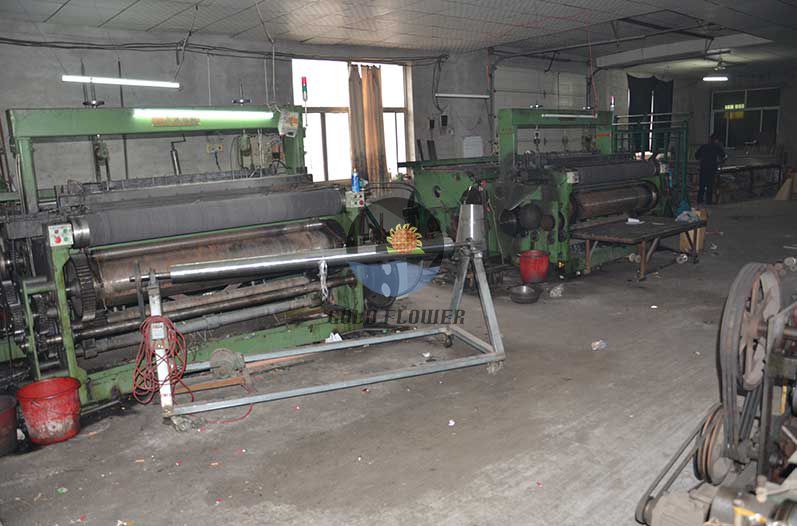Nov . 10, 2024 22:07 Back to list
CE Certification for Metal Mesh Products and Their Compliance Standards
CE Certification for Mesh Metal Ensuring Safety and Compliance
In today's global marketplace, the significance of certifications cannot be overstated. They serve as a testament to a product's quality, safety, and compliance with regulatory standards. One such critical certification is the CE mark, particularly relevant for products, including mesh metal, that are used in various industries such as construction, manufacturing, and automotive sectors.
Understanding CE Certification
CE stands for Conformité Européenne, which translates to European Conformity. This certification indicates that a product meets the essential requirements of relevant European directives and regulations. It is mandatory for certain products marketed within the European Economic Area (EEA) and assures users that the product is safe and reliable. CE certification covers numerous product categories, including machinery, personal protective equipment, and building materials.
The Role of Mesh Metal in Various Industries
Mesh metals, which can be composed of various materials such as steel, aluminum, or even plastic, play a vital role in numerous applications. They are commonly used in filters, safety barriers, fencing, and architectural designs. The versatility of mesh metals makes them ideal for both functional and aesthetic purposes. However, given their diverse applications, ensuring that they meet safety standards is paramount.
The Importance of CE Certification for Mesh Metals
When it comes to mesh metals, achieving CE certification involves rigorous testing and compliance with European standards. This process ensures that the products can withstand specific loads, resist corrosion, and maintain structural integrity under various conditions. For manufacturers, obtaining CE certification is not just a regulatory requirement; it also enhances credibility and marketability.
1. Safety Assurance Mesh metals must be durable and safe for their intended use. CE certification involves evaluating these materials to ensure they do not pose hazards to users, whether that be through sharp edges, structural failures, or material fatigue.
ce certification mesh metall

2. Market Access CE marking simplifies the process of entering the European market. Products that bear the CE mark are accepted in all EEA countries, facilitating easier trade and distribution. For manufacturers outside Europe, obtaining CE certification can open up significant business opportunities.
3. Consumer Trust In an era where consumers are increasingly conscious of product safety and environmental impacts, having a CE mark is an effective way to build trust. Buyers often prefer products that have been certified because it serves as a guarantee of quality and safety.
The Certification Process
The journey toward obtaining a CE mark for mesh metals involves several critical steps. Firstly, manufacturers must identify the applicable directives that pertain to their products. This could include directives related to construction products, machinery, or personal protective equipment, among others.
Next, a detailed assessment of the product’s conformity is conducted. This can involve third-party testing or certification by a notified body, which is an organization designated by EU member states to assess conformity. After successful evaluation, the manufacturer can then affix the CE mark to their product, allowing them to market it across Europe.
Challenges in CE Certification
While CE certification is beneficial, it can also pose challenges for manufacturers. The process is often time-consuming and may require significant financial investment in testing and compliance measures. Additionally, keeping abreast of changing regulations can be daunting, as the EU regularly updates its requirements to address emerging safety concerns.
Conclusion
In conclusion, CE certification is essential for mesh metal products intended for the European market. It ensures safety, enhances marketability, and fosters consumer confidence. As industries continue to evolve and place greater emphasis on safety and quality, the significance of CE certification will only grow. Manufacturers who prioritize obtaining this certification will not only comply with legal requirements but also position themselves as leaders in their field, committed to delivering high-quality and safe products to their customers.
share
-
High-Quality Screen Stone for Modern Stone Screen Walls Elegant Facade Solutions
NewsJun.10,2025
-
High Quality Wire Filter – Cheap Stainless Steel Filter Wire Mesh Cloth & Wire Mesh Filter Solutions
NewsJun.10,2025
-
5 Micron Water Filter Cartridge - Premium Sediment Filtration, Universal Fit
NewsJun.10,2025
-
High Quality CE-Certified Gabion Boxes with OEM Options
NewsJun.10,2025
-
20x20x2 Air Filter High-Efficiency Dust Filtration for Clean Air
NewsJun.10,2025
-
Decorative Metal Mesh for Radiator Covers Custom Durable Mesh Panels
NewsJun.10,2025

